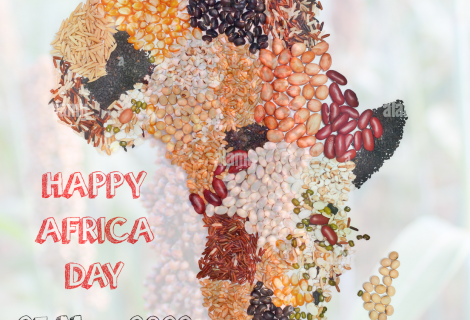Calls for Government to Improve Disaster Management Policies to Mitigate Food Insecurity and Nutrition Challenges

Press Statement
Harare - 25 May 2022 – ActionAid Zimbabwe (AAZ) joins the rest of the world in commemorating Africa Day running under the theme, “The Year of Nutrition,” with a focus on “Strengthening Resilience in Nutrition and Food Security on The African Continent: Strengthening Agro-Food Systems, Health and Social Protection Systems for the Acceleration of Human, Social and Economic Capital Development.” On this day, AAZ calls upon the government to improve the policies that provide safety nets for the vulnerable communities to cushion them against the impacts of climate change.
AU theme for 2022 aims to maintain a strong political momentum on nutrition across the African continent and this is a unique opportunity to strengthen continental commitment to end all forms of malnutrition and improve food security through the implementation of the Malabo Commitments and the goals and objectives of the Africa Regional Nutrition Strategy of 2016-2025.
Since 2017, Southern Africa, Zimbabwe included, has experienced more than 10 cyclones in the form of tropical cyclones, depressions, tropical storms, and droughts resulting in food insecurity and exacerbating the need for humanitarian assistance.
An estimated 5.3 million people across rural and urban areas will be food insecure in 2022 (WFP 2022). The United Nations International Children’s Emergency Fund (2020) further alludes that over 100,000 children under the age of five are suffering from acute malnutrition and over one million young children will not have adequate food, later alone nutritious food, while other vulnerable groups suffering from malnutrition will constitute of pregnant and lactating mothers.
As food insecurity is associated with lower nutrient intakes and malnutrition, people will continue to live with the consequences of disasters if Zimbabwe does not initiate proactive measures to mitigate the impact of natural disasters. With the fast-paced nature of how hazards, shocks, and stresses that are evolving due to climate crises, the absence of an up-to-date disaster risk management legislation exposes the country to high risks. In addition, the non-existence of a comprehensive National Policy on Disaster Risk Reduction, and inadequate national funding for disaster management in Zimbabwe, increases the vulnerability of groups worst affected by climate change. Therefore, AAZ urges the government of Zimbabwe to expedite the finalisation of the Disaster Risk Management draft Bill which has been in the pipeline since 2012.
Recommendations
AAZ appreciates the Government of Zimbabwe's efforts in introducing the National Development Strategy (NDS) of 2021 -2025 which aims to improve the country’s food self-sufficiency and enable it to retain the regional breadbasket status. However, AAZ calls upon the Government to:
1. Expedite the finalization of the Disaster Risk Management Law and replace the now outdated Civil Protection Act of 1989.
2. Enact a comprehensive National Disaster Management Policy to promote the participation of marginalised sections of the population in disaster management structures and decision making to include women, youth, and people with disabilities.
3. Implement the Malabo Declaration, as a commitment to the Comprehensive Africa Agriculture Development (CAADP) principles to end hunger as emphasized by the United Nations Sustainable Development Goal 2 of Zero Hunger by 2030 and the African Union Vision 2030.
4. Linked to 3 above, ensure that the Agro-ecology policy is finalised and adequate resources for its rollout are allocated to ensure food and nutrition security in Zimbabwe.
For more details please contact: ActionAid Zimbabwe Country Director, Joy Mabenge: Email joy.mabenge@actionaid.org or Mobile +263 772904479 Twitter: https://twitter.com/ActionAidZim Facebook: https://www.facebook.com/ActionAidZimbabwe/ Website: https://zimbabwe.actionaid.org/
ENDS//